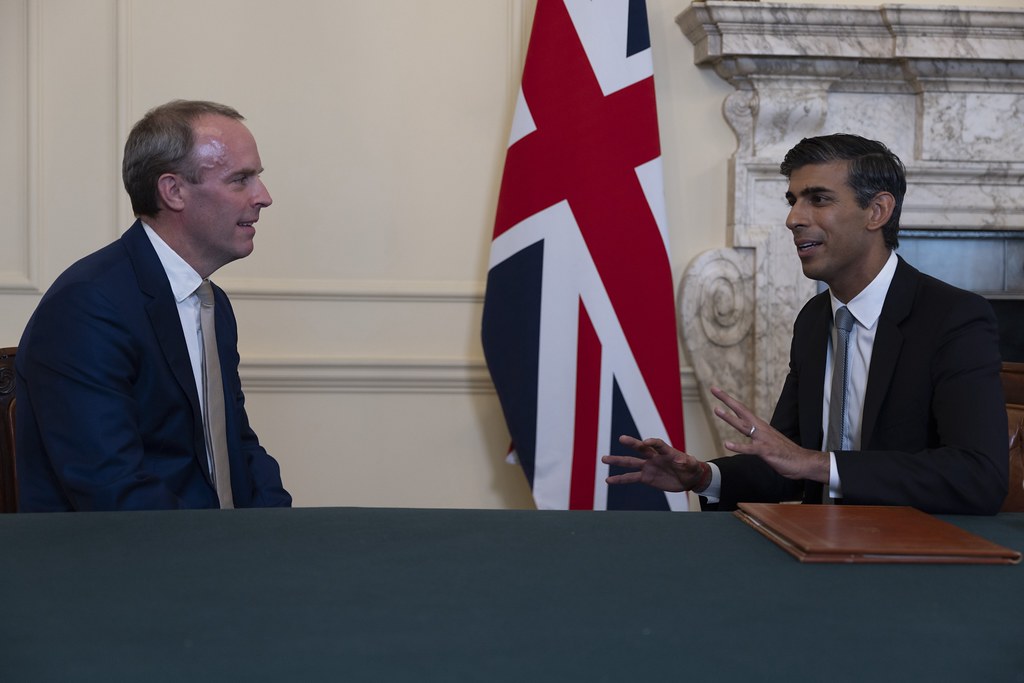Since the historic decision to leave the European Union (EU) in 2016, known as Brexit, the United Kingdom has experienced a myriad of impacts across various sectors. It’s essential to delve into the multifaceted consequences—both positive and negative—to grasp the complexity of this monumental shift. As of the latest available data, let’s explore how Brexit has shaped the economic, political, and social landscape of the UK.
Statistics: As of 2022, UK exports to the EU fell by approximately 40% in January compared to the same month the previous year. Additionally, foreign direct investment (FDI) inflows faced fluctuations, reflecting the uncertainties surrounding the new trade dynamics. These statistics provide a snapshot of the challenges and opportunities that have emerged since the UK officially severed ties with the EU.
The Good:
National Sovereignty: One of the primary arguments in favor of Brexit was the reclamation of national sovereignty. The UK regained autonomy over its legislative processes and policies, free from the constraints of EU regulations. This newfound sovereignty has allowed the nation to chart its course, shaping laws and regulations that align more closely with its unique needs and aspirations.
Trade Agreements: Outside the EU, the UK gained the ability to negotiate bespoke trade agreements, providing a tailored approach to its economic partnerships. The Comprehensive and Progressive Agreement for Trans-Pacific Partnership (CPTPP) and the UK-Japan Comprehensive Economic Partnership Agreement are examples of initiatives that have broadened the UK’s global trade network. This flexibility in crafting trade deals allows the UK to pursue opportunities aligned with its economic priorities.
Immigration Control: Brexit facilitated a shift in immigration policies, with the introduction of a points-based system designed to attract skilled workers. This approach allows the UK to select immigrants based on merit and specific skill sets, shaping a more controlled and targeted approach to immigration. While addressing concerns about population control, this change also aims to meet the country’s labor market needs.
Statistics: As of 2021, the UK saw a notable increase in applications for skilled worker visas, signaling a positive response to the new immigration system. The adaptability of the points-based approach has allowed the country to address labor shortages in key sectors while maintaining control over overall immigration numbers.
The Bad:
Economic Impact: Brexit ushered in a period of economic uncertainty and disruption. In the initial stages, the UK faced challenges such as supply chain interruptions, increased bureaucracy, and a decline in foreign investment. While some of these issues were anticipated during the transition, their long-term effects on economic stability raised concerns among businesses and policymakers.
Trade Disruptions: The introduction of new trade barriers and customs checks between the UK and the EU led to delays and additional costs for businesses. Industries that heavily relied on smooth cross-border trade, such as manufacturing and agriculture, experienced disruptions. Navigating the new trade landscape required businesses to adapt to the changes and invest in compliance measures, impacting their operational efficiency.
Northern Ireland Protocol: The implementation of the Northern Ireland Protocol, designed to prevent a hard border on the island of Ireland, resulted in tensions and challenges. Goods moving between Northern Ireland and the rest of the UK faced increased checks, affecting the flow of trade. The protocol, while addressing a sensitive geopolitical issue, introduced complexities that required careful management to balance economic and political considerations.
Statistics: Data from 2022 indicates that trade flows between Great Britain and Northern Ireland were still adjusting to the new arrangements, with ongoing discussions and negotiations to address issues related to the protocol. The statistics underscore the intricacies involved in maintaining a delicate balance between economic integration and political stability.
This comprehensive overview provides a nuanced understanding of the multifaceted impacts of Brexit, shedding light on the complexities and opportunities that have unfolded since the UK’s decision to chart its course outside the EU. The following sections will continue to explore additional dimensions, including social implications and the broader geopolitical landscape.
The Ugly:
Societal Divisions: Brexit exposed and exacerbated societal divisions within the UK. The referendum campaign and its aftermath revealed deep-seated differences in opinions on issues such as immigration, globalization, and national identity. These divisions have persisted, contributing to a polarized political landscape and challenging the idea of a united national identity. The fractures in public sentiment have influenced political discourse and, at times, strained social cohesion.
Impact on EU Citizens: The status of EU citizens living in the UK became a contentious issue during the Brexit negotiations. While the UK government implemented the EU Settlement Scheme to secure the rights of EU citizens residing in the country, the process was not without challenges. Some EU citizens faced bureaucratic hurdles, leading to uncertainties about their future status. This situation generated anxiety and added complexity to the already sensitive topic of immigration.
Geopolitical Shifts: Brexit has triggered shifts in the geopolitical landscape, impacting the UK’s relationships not only with the EU but also on the global stage. The altered dynamics have implications for diplomatic alliances, security cooperation, and the UK’s role in international institutions. Navigating these changes requires a strategic approach to ensure the country’s interests are effectively represented and safeguarded in an evolving global order.
Statistics: Surveys conducted post-Brexit reveal a persistent divide in public opinion on issues related to EU membership and the consequences of leaving. These statistics underscore the ongoing challenges in fostering a sense of unity and common purpose within the UK.
Looking Ahead:
Adaptation and Resilience: As the UK continues to grapple with the impacts of Brexit, adaptation and resilience will be key. Businesses, policymakers, and society as a whole must remain agile in responding to evolving challenges and opportunities. Investing in innovation, upskilling the workforce, and fostering international partnerships can contribute to the nation’s ability to navigate the post-Brexit landscape successfully.
Global Engagement: The UK’s departure from the EU has opened the door to new opportunities for global engagement. By cultivating relationships beyond Europe, the UK can leverage its strengths in areas such as finance, technology, and innovation. Diversifying trade partnerships and diplomatic ties will be essential in ensuring a robust and dynamic position on the world stage.
Social Cohesion: Addressing societal divisions requires a concerted effort to foster dialogue and understanding. Building bridges between diverse communities and promoting a shared sense of national identity will be crucial in healing the social fabric. Initiatives that focus on education, cultural exchange, and community building can contribute to a more cohesive and inclusive society.
The impacts of Brexit extend far beyond economic considerations, touching on issues of national identity, diplomacy, and societal cohesion. While challenges persist, the UK has the opportunity to shape its future in a rapidly evolving global landscape. The ongoing journey post-Brexit will require adaptability, collaboration, and a forward-looking vision to navigate the complexities of this transformative period.
Frequently Asked Questions (FAQs) on Brexit:
Q1: What is Brexit? A1: Brexit is a portmanteau of “British exit,” referring to the United Kingdom’s decision to leave the European Union (EU). The decision was made through a public referendum held on June 23, 2016, in which a majority of voters chose to exit the EU.
Q2: When did Brexit officially happen? A2: The UK officially left the EU on January 31, 2020. However, a transition period lasted until December 31, 2020, during which the UK and EU negotiated their future relationship, including trade agreements and other key aspects.
Q3: What are the key impacts of Brexit? A3: Brexit has had multifaceted impacts, including changes in trade relationships, economic disruptions, shifts in immigration policies, and alterations to the geopolitical landscape. The effects are seen across various sectors, influencing everything from business operations to diplomatic relations.
Q4: How has trade been affected by Brexit? A4: The introduction of new trade barriers and customs checks has led to disruptions in trade between the UK and the EU. Businesses have faced challenges adapting to the new trade dynamics, with some industries experiencing delays and increased costs. However, the UK has also pursued new trade agreements outside the EU.
Q5: What is the Northern Ireland Protocol? A5: The Northern Ireland Protocol is a part of the Brexit Withdrawal Agreement designed to prevent a hard border on the island of Ireland. It establishes a unique status for Northern Ireland, with the region effectively remaining in the EU’s single market for goods to avoid a physical border with the Republic of Ireland.
Q6: How has Brexit impacted immigration policies? A6: Brexit has led to a shift in the UK’s immigration policies. The introduction of a points-based system prioritizes skills and qualifications in immigration decisions, allowing the UK to attract skilled workers while controlling overall immigration numbers.
Q7: What steps has the UK taken to mitigate the impacts of Brexit? A7: The UK government has implemented various measures to address the challenges posed by Brexit, including the negotiation of new trade agreements, the introduction of the EU Settlement Scheme for EU citizens, and the adaptation of immigration policies to align with the post-Brexit landscape.
Q8: How has Brexit affected societal cohesion within the UK? A8: Brexit has exposed and exacerbated societal divisions within the UK, particularly in terms of differing opinions on issues such as immigration and national identity. These divisions have contributed to a polarized political landscape and ongoing challenges in fostering social cohesion.
Q9: What is the UK-Japan Comprehensive Economic Partnership Agreement? A9: The UK-Japan Comprehensive Economic Partnership Agreement is a trade deal between the UK and Japan that came into effect on January 1, 2021. It aims to strengthen economic ties between the two countries by eliminating or reducing tariffs on goods and facilitating trade in services.
Q10: What does the future hold for the UK post-Brexit? A10: The future for the UK post-Brexit involves ongoing efforts to adapt to the new realities of its relationship with the EU and the rest of the world. This includes navigating trade challenges, building global partnerships, and addressing domestic issues related to immigration and societal cohesion. The long-term outlook will depend on the ability to harness opportunities and overcome challenges in a rapidly changing global landscape.




